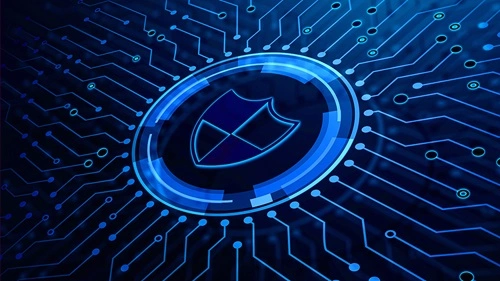Cybersecurity remains one of the most serious issues for organisations in all sectors.
In this ever-evolving market of technology, cyber threats too are evolving, taking an expansive approach towards targeting businesses and people both. Whether it’s ransomware or holes in AI-based systems, keeping up with developing threats demands ongoing learning and skill-building.
For aspiring professionals and seasoned practitioners, cybersecurity courses or cybersecurity courses in India offer the organised training needed to counter these types of threats. In this post, we’ll examine the 7 biggest budding cybersecurity challenges and how classes are preparing you to overcome each.

Why Cybersecurity Talent Is More Critical Than Ever
Cybersecurity is no longer an IT problem, but a business-critical function. Digital transformation, cloud use, and apps that leverage AI — it is all posing myriad security challenges for companies. A few of the main reasons that cybersecurity expertise is so sought after:
- Rising complexity of cyber assaults.
- Fast embrace of remote work and cloud technologies, growing attack vectors.
- Compliance governance (ie, GDPR, HIPAA, ISO standards).
- The importance of identifying and investigating threats in a way that will prevent breaches.
Through cybersecurity training, these professionals can learn the technical skills and earn certificates they need to safeguard organisations from ever-changing cyber threats.
Ransomware Strikes Are Being Delivered to More Discriminating Targets
Ransomware isn’t going away either; attacks are only getting more advanced and hitting sectors such as critical infrastructure, healthcare, and financial services harder than ever. Contemporary ransomware attacks typically come with data encryption and extortion demands: attackers ask for a hefty amount of money not to leak the information.
How Courses Prepare You:
- Training in the different aspects of incident response and disaster recovery.
- Workshops for identifying ransomware characteristics and quarantining confronts.
- Understand backup options, encryption approaches, and network segmentation principles to best protect against an attack.
A cyber security course in India provides you with practical knowledge as well, which would enable you to respond to a ransomware threat when it attacks.
Phishing and Social Engineering Are Still Very Successful
Phishing is a social problem that takes advantage of human psychology and can defeat technological measures. From phishing emails to deepfakes, AI-generated messages, and the attacks of social engineers are growing more sophisticated.
How Courses Prepare You:
- Educational modules on email, SMS, and voice phishing techniques.
- Phishing simulations to assess and build resiliency throughout the organisation.
- Teaching on MFA, endpoint security, and training your users.
In polarisation, cybersecurity courses are used to inform practitioners on how to recognise, deter and subvert social engineering attacks, thereby strengthening the human firewall.
AI-Driven Attacks Are Increasing
AI is not just an option for those who defend against cyber threats – it can be a weapon in the hands of attackers. AI-based malware can learn and circumvent security filters, achieving automation at scale.
How Courses Prepare You:
- AI and Machine Learning in Cybersecurity Education, Anomaly Detection included.
- Practical, real-world sessions on AI-enabled security tools for threat prediction and response.
- Perspectives on using AI responsibly and checking AI systems for weaknesses.
A good cybersecurity course in India will focus not only on offensive AI but also on defensive AI.
Cloud Security Vulnerabilities Are Expanding
With so many companies moving to the cloud, things like misconfigurations, data leaks, and unauthorised access have turned into widespread security issues. Cloud computing poses a range of security issues that call for understanding and dissemination.
How Courses Prepare You:
- Training in cloud security models, IAM (Identity Access Management) and encryption standards.
- Hands-on exercises to keep an eye on the cloud and find misconfigurations.
- Knowledge of cloud platform compliance, such as ISO 27001, SOC 2, and GDPR.
Cybersecurity is taught to make sure people can effectively secure hybrid and multi-cloud environments.
More Attack Surfaces with IoT Devices
As the number of Internet of Things (IoT) devices continues to multiply, so do the opportunities for cyber attackers to gain access. Many of these devices in homes, healthcare, and industrial settings have little if any security controls in place.
How Courses Prepare You:
- Experience with IoT secure protocols, device authentication, and firmware security vulnerability.
- Education on IoT network partitioning and endpoint surveillance.
- Understanding of the new threats for IoT and applicable countermeasures.
Professionals who obtain such skills in cybersecurity training can protect IoT networks against advanced-level attacks.
Supply Chain Attacks Aim at Worthy Networks
Supply chain attacks manipulate weaknesses in a third-party vendor or software supplier. High-profile incidents have demonstrated how attackers can penetrate trusted networks to steal sensitive data.
How Courses Prepare You:
- Training in vendor risk assessment and supply chain security.
- Experience with software integrity checks, patch management, and third-party audits.
- Methods for detecting and preventing multi-tier supply chain risks.
Cyber security course India programs commonly involve supply chain attacks case studies, so that the trainee knows about the subtle danger in indirect risk.
Insider Threats Continue to Stand as a Challenge
Organisations remain vulnerable to insider threats—intentional or inadvertent. Mind workers who have access to crucial systems can accidentally or intentionally incur sensitive information loss.
How Courses Prepare You:
- Modules on behavioural analysis and user activity monitoring.
- Education on access controls, least necessary principles, and what to do in the event of an incident.
- Computer-based scenarios for identifying and handling insider threats.
Insider threat management is addressed by cybersecurity classes in preparing individuals to protect their organisation’s assets from the inside.
How Cybersecurity Courses Prepare Professionals for 2025
Modern cybersecurity learning promotes both immediate and future threat responses, as well as teaching theory through practical application. Key benefits include:
- Labs: Hands-on labs of simulated attack scenarios.
- All-Inclusive Curriculum: Includes networking, cloud, IoT, AI security, and compliance.
- Professional Certifications: Builds credibility and future career opportunities.
- Analysis of Threats in Real Time: Training with intelligence on threats, monitoring, and response.
- Professional Development: Prepare students for jobs as Security Analysts, Ethical Hackers, or Security Consultants.
By joining a cybersecurity course in India, students are prepared to detect, prevent, and control threats in the rapidly changing digital space.
Best Skills to Learn from Cybersecurity Courses
Professionals who finish such cybersecurity courses gain essential skills for today’s threat environment:
- Open Source Threat Detection and Response: Explore detecting and responding to cyber threats at speed.
- Vulnerability Analysis: Analyses system vulnerabilities and suggests remediations.
- Incident Management: Utilise formalised procedures for processing incidents.
- Compliance Know-How: Knowledge of regulations and cybersecurity norms.
- Dependable Network Design: Design and construct a solid system to avoid attacks.
These skills assure that certified individuals are not only technically qualified to deal with advanced cyber threats but also have a strategy for effectively implementing critical security controls and standardised best practices established by the ACSC.
The Future of Cybersecurity Careers
The need for cybersecurity specialists is expected to keep rising in 2025 and beyond. Companies are spending a ton on top-notch technicians to secure against these new threats. Several skilled professionals will benefit professionally from such careers:
- High employability and competitive salaries.
- Job opportunities in finance, healthcare, IT, and government.
- Incident Response, Threat Intelligence, and Security Architecture leadership positions.
- Ongoing training to keep up with ever-advancing technology and threats.
By undertaking cybersecurity courses or a dedicated cybersecurity course in India, professionals will be ready to take advantage of these opportunities.
Conclusion: The Next Cybersecurity Threats And How To Prepare For Them
The cybersecurity landscape in 2025 is crowded, featuring everything from ransomware and phishing to attacks powered by artificial intelligence, as well as weaknesses in supply chains. Professionals who have the skill of preventing damage to an organisation’s reputation and future losses often do so by investing in their talents through cybersecurity courses, programs such as a dedicated cybersecurity course in India.
After learning these top 7 threats and gaining practical experience from the courses, you will:
- Operate in an efficient manner when responding to cyber incidents in reality.
With more Quantum systems and solutions than any other company, Stefan Krach, CTO of evolutionQ, said Evolution needs to zero in on its areas of focus for post-Quantum security on networks, the cloud, and IoT.
- Take your career to the next level in a high-growth, future-proof field.
Cybersecurity training is one of those investments; it’s not simply to become certified, it’s to ensure that you can be prepared for what comes tomorrow in the digital world.
